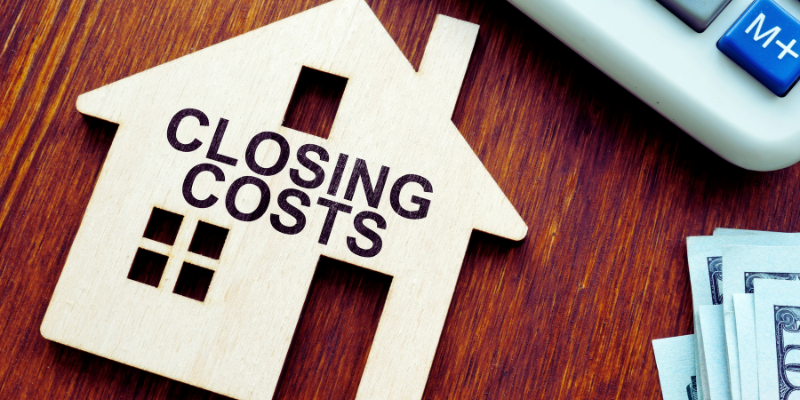
If you want to sell a house in Florida without any problems, you need to know exactly who pays the closing costs. Many sellers have to deal with fees, like title insurance and state taxes, that can have a big effect on their net earnings. This guide goes into detail about the financial duties sellers have at closing and gives you important information to help you handle these costs well.
Whether you’re negotiating with potential buyers or finalizing terms, gaining clarity on these costs can empower you to make informed decisions and optimize your selling strategy in the competitive Florida market.
Key Highlights
- Understanding closing costs is crucial for Florida sellers to manage expenses and optimize their selling strategy.
- Key components include title search, insurance fees, and documentary stamp tax, which impact sellers’ responsibilities.
- Sellers can negotiate closing costs, sometimes covering buyer expenses to enhance marketability and hasten sales.
- Average closing costs range from 5% to 10% of the sale price, affecting net profits for sellers.
- Minimizing costs involves strategic negotiation, market understanding, and selecting reputable real estate professionals.
Understanding Closing Costs in Florida: An Overview
For those venturing into the Florida real estate market, understanding closing costs is crucial. These expenses can impact the final transaction figures and vary significantly depending on several factors. Florida sellers might wonder how these closing fees affect their bottom line.
This summary will help clear up the process by looking at what closing costs are and grouping together the most important state-specific parts. With these tips, people who are selling their home can better get ready for what’s to come in the selling process.
What Are Closing Costs?

Fees and costs that come up during the buying and selling of a house are called “closing costs.” They are not the same as the price of the house itself. Closing costs in Florida usually cover a number of costs that need to be paid in order for the buyer to take ownership of the property from the seller. These costs include title searches, loan origination fees, and renters’ insurance. The appraisal fee is a key part because it makes sure that the property’s worth matches the purchase price. A good appraisal can set clear expectations and avoid future disagreements, which is especially important for sellers who want to make the most of their real estate investment.
Florida closing fees include different charges that can be paid once or on a regular basis, which affects how each party negotiates. It’s important for sellers to understand these fees so they can meet all of their obligations without any surprises. Sellers sometimes pay for some closing costs to make their property more appealing to buyers in a competitive real estate market. For example, sellers may pay some or all of the buyer’s closing costs to speed up the sale.
Closing costs also include things that are paid for in advance, like property taxes and homeowner’s insurance escrows, which are collected at closing. Most of the time, sellers prorate these costs to the closing date, which makes sure that the costs are split fairly based on how long each person has owned the property. This exact calculation of fees makes sure that both parties know what they have to pay, which makes the closing go smoothly. Sellers who know all the details about these costs can negotiate better and protect their financial interests. In a complicated real estate market, it’s important to know these things so you can make smart choices.
Key Components of Florida Closing Costs
Florida’s closing costs consist of various elements that sellers must comprehend to navigate a property sale successfully. A prominent feature of these costs is the title search fee, which confirms the property’s title is legally valid and free from claims. This search is essential in preventing future legal challenges, offering peace of mind to both buyers and sellers. The associated title insurance fee further protects against any potential disputes, ensuring that legal and financial liabilities do not fall onto the new property owner or their lender.
Another significant aspect is the documentary stamp tax, which Florida imposes on property transfers. This tax is primarily the seller’s responsibility and varies based on the property’s sales price. Budgeting for this can help mitigate unexpected financial burdens. Additionally, the state dictates certain recording fees to document the transaction officially with local authorities. These fees, though modest, are crucial for legally transferring ownership and finalizing the property sale.
A second thing that buyers need to pay attention to is the settlement or closing fee. For their services, such as preparing documents and coordinating between parties, it pays the closing agent. A fee like this makes sure that the ending is done correctly, which lowers the risk of mistakes that could slow down or make the deal more difficult. People selling their homes in Florida should also know about the broker commission fees that they usually have to pay. As a portion of the property’s sales price, these fees are agreed upon as payment for the real estate agent handling the sale.
Understanding these key components allows Florida sellers to plan and allocate finances accurately. The ability to anticipate and negotiate these costs not only enhances a seller’s marketability but also guarantees that the property transaction proceeds without hitches. Sage sellers focus on these cost components early in the selling process to streamline negotiations, speed up transactions, and ensure favorable outcomes. Properly managing these financial responsibilities is a crucial step in achieving successful real estate endeavors in Florida.
Who Pays Closing Costs in Florida?
When it comes to property transactions in Florida, dividing closing costs between buyers and sellers remains a key factor. These expenses can significantly influence negotiations and ultimately affect the final sale price. In many cases, both parties share certain costs, although the breakdown often depends on local practices and specific agreements.
By examining these costs more closely, sellers can better understand how they impact their decisions—and how this might affect the competitiveness of their listings. At the same time, we buy houses in Florida, providing sellers with a straightforward option to avoid many of these complications.
The Debate: Buyers vs. Sellers Pay

In Florida, the debate over whether buyers or sellers pay closing costs remains a central part of real estate transactions. Closing costs include multiple fees tied to finalizing a property sale, such as title insurance, appraisal fees, and taxes, all of which carry significant financial weight. Traditionally, buyers take on most of these expenses, especially those linked to loan acquisition, like lender fees and mortgage insurance. Still, sellers have their share, often paying the real estate commission and documentary stamp taxes. This balance ensures sellers participate in the transaction, preserving fair market practices and encouraging smoother property sales.
You can’t ignore the power of bargaining in real life. When there is a lot of competition in the market, sellers may pay some of the closing costs for the buyer to get them to buy. This strategy can speed up the sale by helping buyers on a budget who may not have the cash on hand right away. It also shows that the seller is willing to be flexible, which is helpful when there is more supply than demand. This move can even raise the final sales price, because buyers may be ready to pay more if they know they won’t have to pay as much up front.
The buying agreement itself is another thing that affects who pays. These contracts, which are usually handled by real estate agents, show both how the market is doing and what the seller wants. The real estate market in Florida is very varied, so terms are also very different. When markets are busy in cities, sellers often agree to pay more to close deals fast. When markets are slower, on the other hand, buyers usually take on more of the financial burden.
In the end, figuring out who pays the closing costs in Florida takes knowing how the market works and being able to negotiate well. If sellers really want their property to stand out, they might agree to pay some of these costs. This will make their property more appealing. People who know the rules and know how to deal can change how costs are split, which can make transactions go more smoothly and possibly lead to a better sale.
Sellers’ Closing Costs Explained
Closing costs in Florida often raise questions among sellers eager to know their obligations. These costs form a key part of the selling process, covering multiple fees that sellers need to plan for. Since they directly affect net proceeds, understanding them is vital. From title-related expenses to agents’ commissions, these charges make up a detailed financial picture that Florida sellers must handle carefully. This section outlines common fees sellers cover and offers tips on negotiating them.
Common Fees Sellers Pay
When selling a property in Florida, sellers face various closing fees essential to completing the deal. A major one is the title search and insurance. The search confirms legal ownership and clears disputes, while insurance protects both buyer and seller against future claims. Covering these costs ensures a clean title transfer, which is critical for property rights to pass without issue.
Another major cost is the documentary stamp tax, a transfer tax based on the final sale price. Florida law assigns this tax mostly to sellers, and it must be calculated and paid accurately to avoid legal delays. Misjudging it can reduce expected profits.
When selling an investment property, broker commission fees are another high cost for sellers to consider. These fees cover services like marketing, legal assistance, and negotiations, and are usually set as a percentage of the sale price. While they’re almost never negotiable, it’s important to understand how much they will be. In addition, there may be smaller expenses sellers are responsible for, such as recording fees that legally finalize the transaction. These costs are among the last formal steps required to properly close the deal.
Negotiating Closing Fees with Buyers
Negotiating closing costs often plays a big role in Florida real estate. One common tactic is for sellers to offer to cover part of the buyer’s costs. This can be persuasive, especially when buyers have many options. Agreeing to such terms can make a property more appealing, drawing in budget-conscious buyers and speeding up sales.
How much room there is for negotiation rests on how the market is doing and how appealing the property is. In a buyer’s market, owners may be willing to pay more to get the deal done quickly. When there are a lot of sellers, buyers usually have to pay more. Cost support is often used as a way for sellers to stand out in Florida’s bigger cities.
For sellers, the key is being informed and adaptable. With advice from real estate professionals, they can approach negotiations strategically and ensure fair outcomes. A balanced approach helps maximize profits while offering buyers fair value, leading to quicker and more successful closings.
Average Closing Costs for Sellers in Florida
Florida sellers can make better budgets when they know what the normal closing costs are. These fees are different for each type of property, area, and set of agreed-upon terms. Costs like taxes, insurance, and court fees are common. Knowing these things helps keep things from going wrong and makes the deal go more smoothly.
Typical Amounts and Variances
On average, Florida sellers spend between 5% and 10% of the property’s sale price on closing costs. Since these fees can impact final profit, sellers should plan carefully. Tools like closing cost calculators provide accurate breakdowns based on property value and market location, serving as useful budgeting aids.
Title insurance is a major cost that sellers usually cover to ensure a clean transfer of ownership. Another heavy fee is the documentary stamp tax, which depends on the sale price. Other costs, like recording and processing fees, add up and should not be overlooked.
Market conditions play a big role in how costs are shared during a home sale. In a slower market, sellers may offer more incentives to attract buyers, while in a hotter market, buyers typically take on a larger share of the expenses. If you’re looking to sell your house fast in Tampa, it’s important to stay ahead of these shifts. By being proactive and consulting with local experts, sellers can better prepare for changes and avoid last-minute surprises.
How to Minimize Your Florida Closing Costs
Florida sellers can reduce costs by planning strategically and negotiating wisely.
Understanding where savings can be made and where flexibility helps seal the deal is key. This section offers cost-saving tips and emphasizes why investing in a smooth process can be just as important as reducing fees.
Cost-Saving Tips for Sellers
Finding ways to cut costs is the first step to lowering closing costs. For example, you can get better rates on title insurance by looking around and negotiating the premiums. Some companies even bundle it with home insurance to save you even more money.
Revisiting commission structures is another avenue. While not always flexible, sellers with strong relationships may negotiate adjusted fees or outcome-based arrangements.
Also, sellers should think about whether it’s worth it to cover buyer rewards. If the market is fair, it might not be necessary, but if there are a lot of buyers, it can help close deals faster. Another smart move is to do an inspection before the sale. This keeps budgets in check and stops buyers from demanding expensive repairs during talks.
Lastly, working with real estate professionals who offer consolidated services can streamline processes and uncover hidden efficiencies. Their expertise can uncover savings that might otherwise go unnoticed.
Investing in a Smooth Closing Process

A smooth closing process not only prevents delays but also reduces unexpected costs. Preparation is key: sellers should gather and verify all required documents early to avoid legal or financial hiccups.
It makes a big difference to hire a skilled closing person. They help people talk to each other, keep track of paperwork, and avoid making mistakes. They can save you time and money because they know Florida’s real estate rules.
Sellers should also communicate closely with lenders to ensure all financial matters are in order. High-quality appraisals and inspections further enhance trust and ensure both parties feel confident about the sale.
Time management is also crucial. Setting clear deadlines with all stakeholders prevents delays and keeps the process on track. Using digital project tools can further simplify coordination.
By choosing a smooth and efficient process, sellers can avoid unnecessary expenses while keeping the sale on schedule. With experienced professionals by your side and a proactive approach, you can enjoy a profitable outcome and a stress-free transaction. At Revival Homebuyer we buy houses for cash in any situation, call us today to know more!
FAQs
Who typically pays closing costs when selling property in Florida?
In Florida, both parties share costs, but sellers usually pay for title insurance, documentary stamp tax, and broker commissions.
What are closing costs and why do they matter for sellers in Florida?
Closing costs are fees tied to a sale, such as insurance, title checks, and taxes. Understanding them helps sellers plan finances effectively.
Can sellers negotiate closing costs in Florida real estate transactions?
Yes. Covering part of the buyer’s fees can make a property more appealing and speed up the sale.
What are some strategies for minimizing closing costs as a seller in Florida?
Negotiating title insurance, limiting buyer incentives, and adapting to market conditions are effective strategies.
How do different components of closing costs impact sellers in Florida?
Major fees like title insurance and documentary stamp tax directly affect profits. Managing them well boosts marketability and ensures a smoother sale.
Helpful Florida Blog Articles
- Selling Your Florida Home With A Reverse Mortgage
- How to Sell a House While Relocating in Florida
- How to Sell My House to a Developer in Florida
- Is It Possible to Change Homeowners Insurance After Closing in Florida
- Can I Sell Half of My House in Florida Real Estate
- Sell My Florida Home with a HELOC
- Can Medical Bills Take Your Home in Florida
- Selling a House Without a Realtor in Florida
- Divorce Home Appraisal in Florida
- Does A Seller Pay Closing Costs in Florida
- How to Sell an Investment Property in Florida

